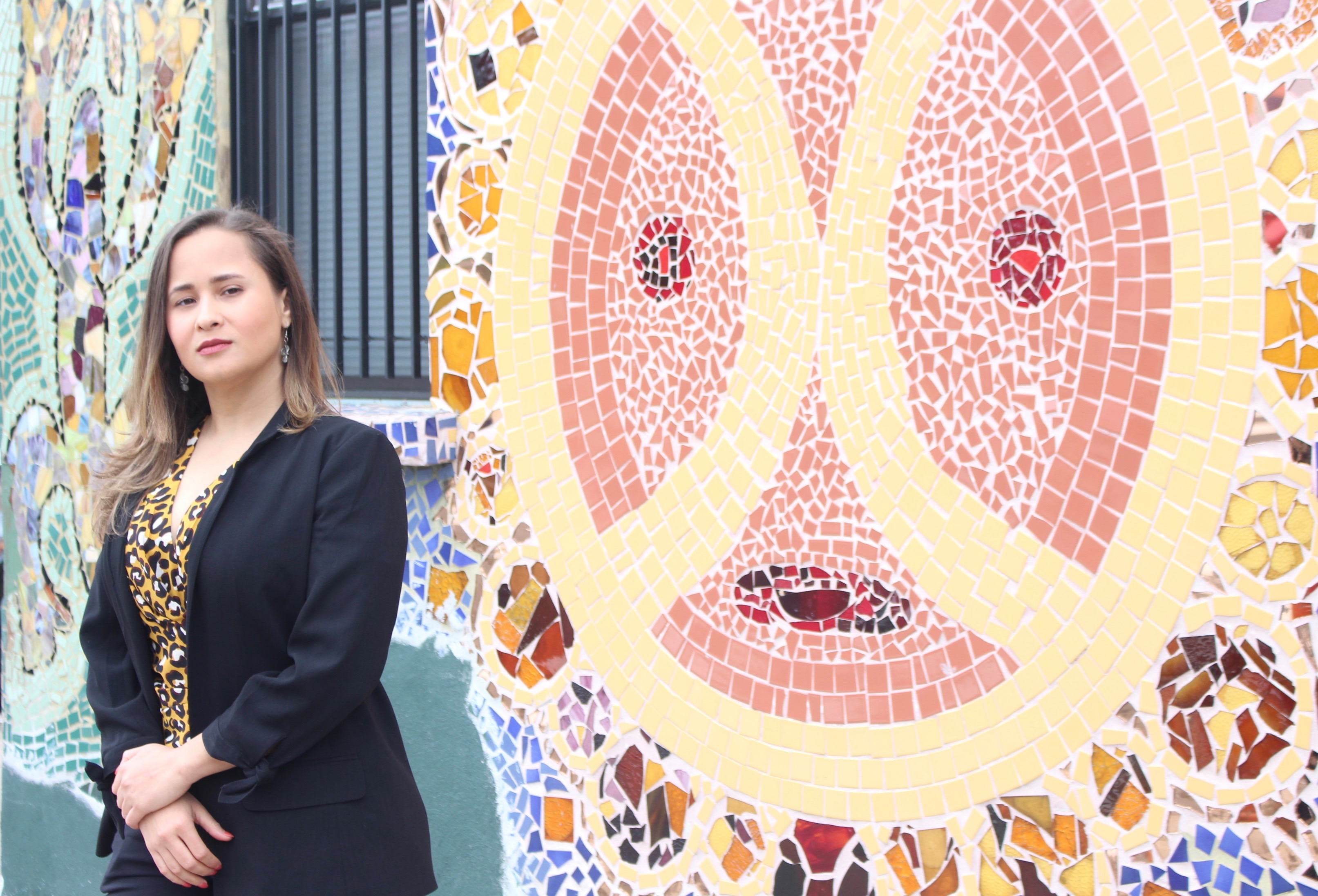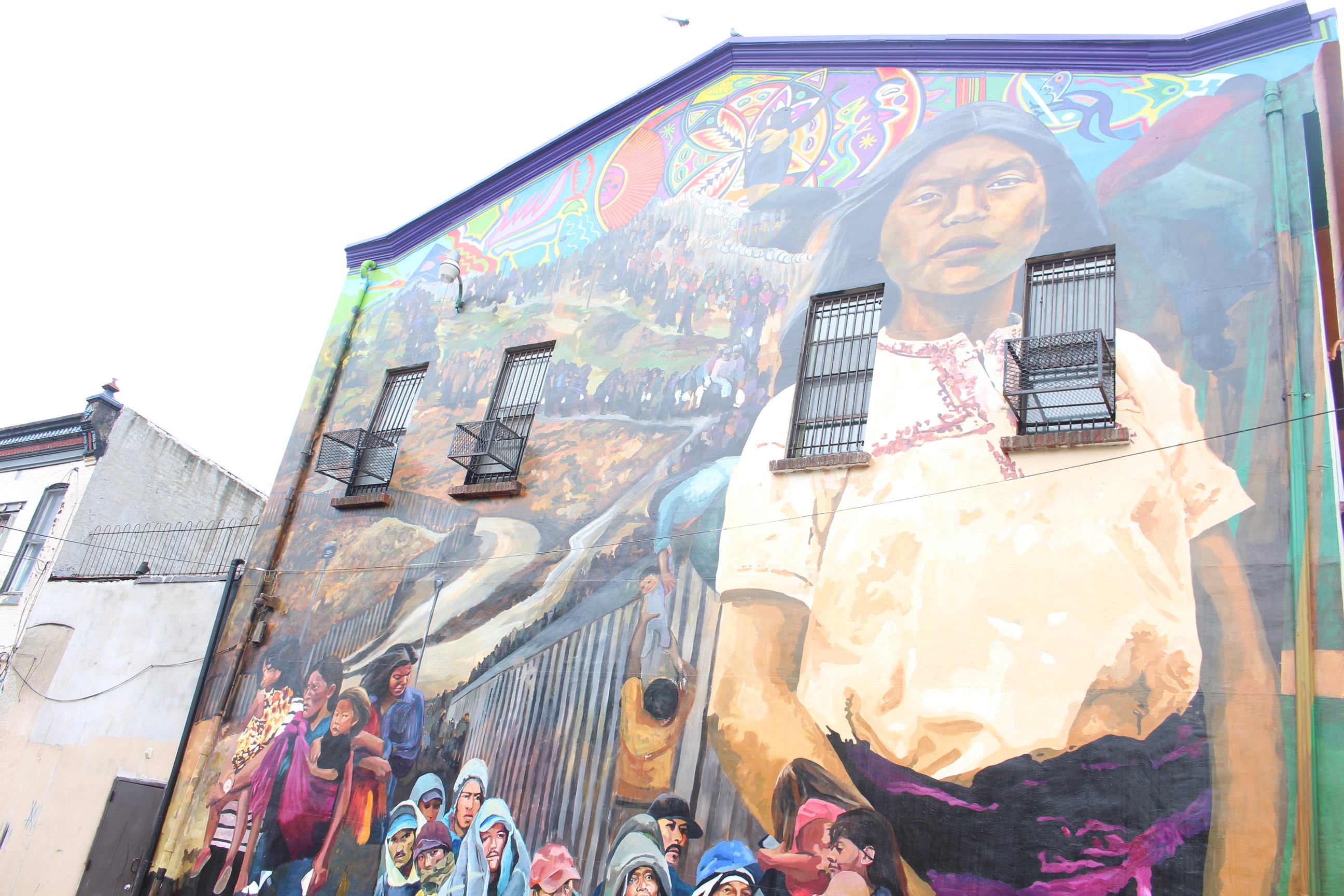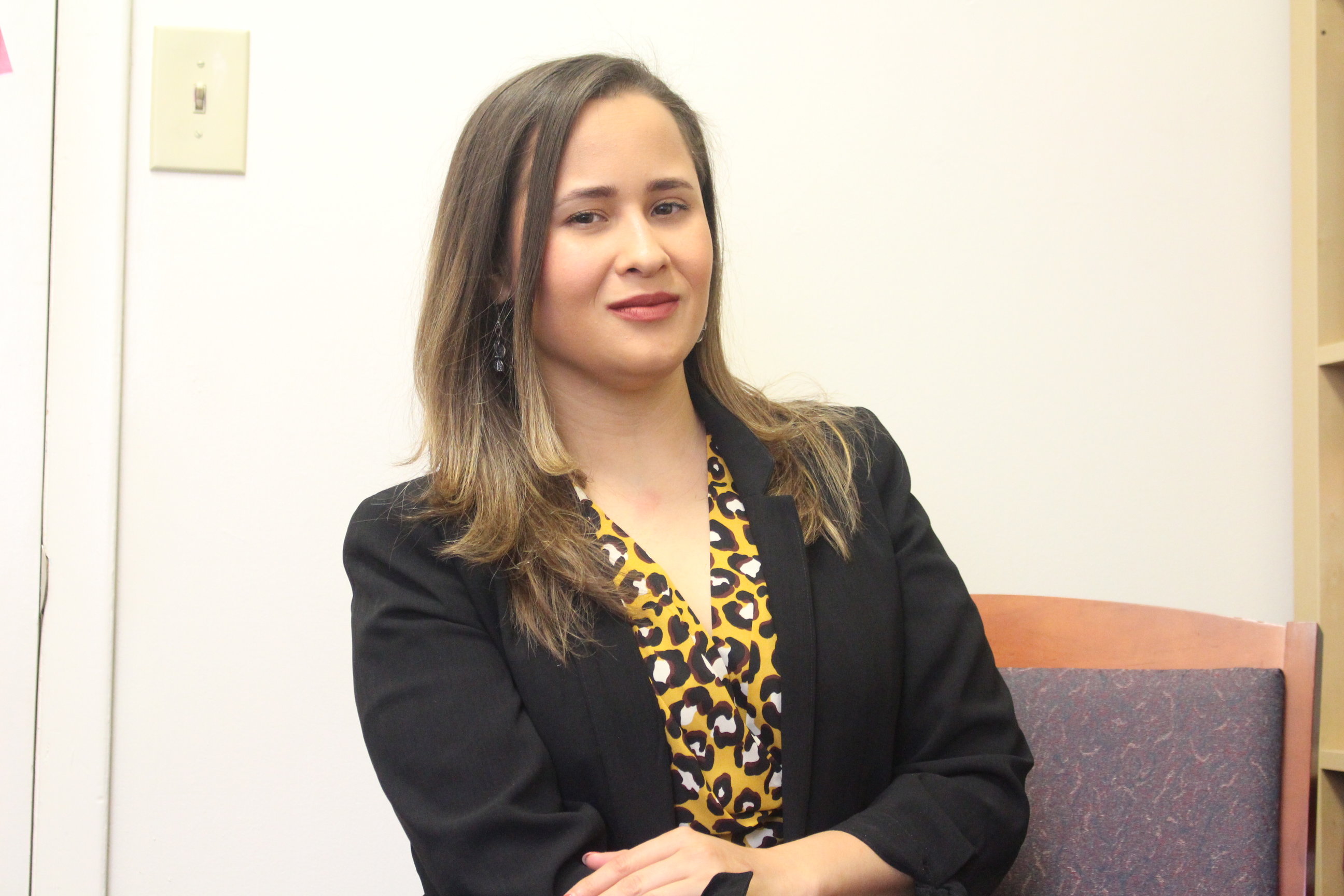
Taking an alternative route: The journey of Siria Rivera
The path towards getting to her current role as executive director of Providence Center was far from linear, and Siria Rivera wouldn’t have it any other way.
When Siria Rivera was 16 years old, she did something that over 1.2 million high school students in the United States do each year — she dropped out.
A product of the public school systems in Philadelphia, Camden and Pennsauken, Rivera often struggled in school.
“Not academically, but I struggled with the structure of school,” she said during an interview, noting waking up early and standardized tests as some of her struggles.
“In retrospect, I can see now as a parent that it was because I didn’t have stability or structure in my home that I struggled with the structure of school,” she added.
During her middle school years, her parents had gone through a divorce, leaving Rivera and her two siblings to be raised by a single mother in a low-income household.
She was held back in seventh grade, and entered high school a year behind her age group. Rivera missed about 50% of school, to the point where during her sophomore year, she was told she’d have to be held back again, despite having passing grades, for not reaching the attendance requirements.
After realizing the issue was with the school structure and not a lack of intelligence, Rivera convinced her mother to sign her out of high school and allow her to go to night school instead. About a year went by before she decided to give night school a try. However, she felt it was too slow-paced and stopped going shortly thereafter.
“I decided that I would take my GED based on a recommendation from a case manager that I had at that time,” said Rivera. She passed most of the subjects with an above-average score compared to the state level.
Bolstered by that, coupled with the persuasion of her case manager, Rivera was able to continue her higher educational journey, and find her unique path to it along the way.
After passing the GED exam, she enrolled in a number of online courses and eventually earned a bachelor’s degree in Spanish from Rutgers, completed a master’s program on bilingual/bicultural studies at LaSalle, and then received a master’s degree in educational leadership.
“I’ve taken very alternative routes the whole entire time,” said Rivera. “I think I’ve uncovered a lot of things that aren’t really shared with our youth about the fact that it’s not really how you get there, it’s where you’re going really and the fact that you get there.”
Rivera highlighted the fact that a typical linear path didn’t work for her, and her understanding that there are many young people in the same situation sparked a passion for youth development.
It’s that passion that eventually led her to where she is now, as the executive director of Providence Center in the Fairhill section of Philadelphia.
Founded in 1993, Providence Center offers educational programming for children, youth and adults with the mission of educating people to have the power and spirit to transform their lives and community.
For children, youth and teens, Providence Center provides emotional and academic support, a safe and caring environment, youth advocacy groups and opportunities to do community-based projects with the focus of building them as young leaders and role models.
“That really attracted me to be here and to be a part of that program. And I knew that I could help grow it because of my experience,” said Rivera, who started in the role in September 2019.
Adults are offered English language classes that go towards helping them gain the ability to help their children with homework, find better jobs, engage in their community and more.
“We try to really focus on both generations — the parent or guardian and the child at the same time,” said Rivera.
“I think that really is the only way to help the family… the attention that I would like to bring to Providence Center is that we really are a comprehensive, whole family-oriented community center,” she added.

Located in Fairhill, where about 83% of residents are Latino — the highest of any Philadelphia neighborhood — the community faces several challenges. These include having one of the highest poverty rates in the city, as more than half of the community lives below the poverty line, with a median household income of under $16,000. The national average is above $55,000.
Fairhill also struggles with a crime rate that is double the city’s average.
Through a variety of programs, Providence Center remains committed to helping hard-working families build hope and opportunity towards their futures.
Throughout her professional career, Rivera has frequently worked in grassroots, community-based organizations. She was initially at the nonprofit, Democracia USA, in Pennsauken, NJ, and later worked with the Greater Philadelphia Hispanic Chamber of Commerce.
While those opportunities allowed her to work with the Latino community and grow her network, Rivera had a more defined approach and goal of making a bigger impact.
“I did not want to go that obvious route,” she said. “I wanted to put myself in organizations and have conversations where Latinos and Latina women were not represented, and where we weren’t going.”
As she was moving towards her degree in education, Rivera wanted to go into an educational setting to gain that perspective. This led to her becoming the first employee hired at a charter school in Camden, where she helped in the opening of the school and developing it from an operational sense, and working with families and communities who were associated with it.
After stops at Diversified Community Services in Point Breeze, and the nonprofit Better Tomorrows in New Jersey, where she continued working directly with families, Rivera was intrigued by the idea of returning to her birthplace in Philadelphia and continuing to work with families by taking on the responsibility of leading Providence Center.
“I was very blessed with this opportunity,” she noted.
RELATED CONTENT

With each stop, Rivera has been able to develop her leadership skills and continue to grow both personally and professionally.
As a Puerto Rican and first-generation Latina born in the United States, Rivera has always embraced being bilingual and bicultural, and credits that for her open-mindedness. It’s why she deviated from working at Latino organizations for a while, before returning to work in the predominantly-Latino Fairhill section at Providence Center.
“I wanted to first expose myself to different populations and learn social services and education from a wider range because I knew how important it was to learn about people in general,” Rivera said.
She remains grateful for the trust and open-mindedness of those who hired her, allowing her to use her different approach to leading.
“It’s good to have people who are willing to take a risk on young leadership,” she added.
Rivera considers a leader as “someone who, in a selfless way, carries forward an agenda that helps their community.”
And through her role at Providence Center, she is able to do just that.
Whether it’s educationally, personally or professionally, Rivera has never been afraid to take alternative routes to her destination.
It’s a message that she says isn’t really taught to young people in schools.
“They don’t really teach you that there are alternative routes and it’s ok to take an alternative route,” she said.
As someone who dropped out of high school but still found success, Rivera believes students who may be contemplating dropping out of school should have someone who can enlighten them about the routes that can be taken as next steps, similar to the case manager she had when she was going through that process.
“I don’t think anyone chooses not to want more for themselves. I think most times, people don’t think there’s more for them than what they’re offered,” Rivera added.
Whether it be for other Latinos who grew up in similar circumstances, or diverse youth of color, Rivera sees herself as an example of someone who overcame while taking a different path than most others.
She feels it’s important for young people to know what options are available, and be unafraid to take a different path if the situation calls for it, so long as the individual can detail what their goal is.
Drawing from her experience, Rivera wants to be an inspiration to others to be able to see past their circumstances, while believing and investing in themselves and their passions.
“I dropped out of high school when I was 16. I’m [now] 34, and it’s taken every year in between that to get to where I’m at of consistent effort and consistent investment in myself,” she said.
While there are many things working against youth, Rivera is one individual who works to ensure they know what options are available.











LEAVE A COMMENT: